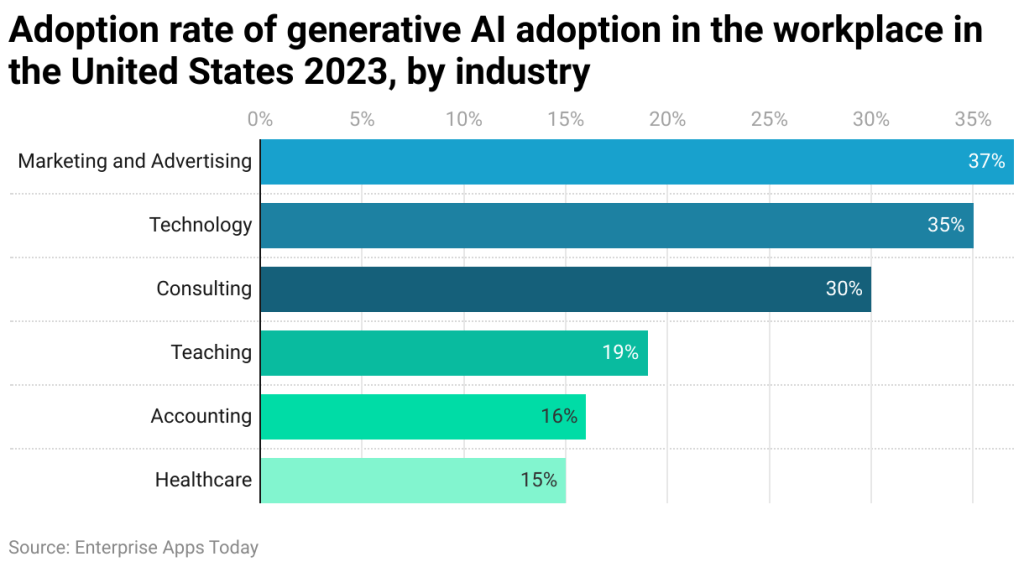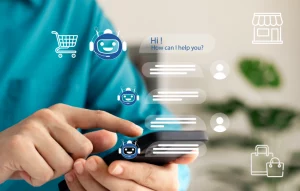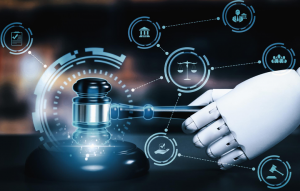Generative AI has emerged as a disruptive technology that is reforming various industries. Large language models (LLMs) are gaining immense popularity due to their remarkable potential to solve complex challenges and unlock new opportunities. It has an ability to generate human-like text.
According to Accenture’s research, LLMs have the potential to impact 40% of working hours across various industries. The study examined 200 language-related tasks and their distribution throughout different sectors based on 2021 employment levels in the US. Language tasks comprised 62% of total working time. 65% of those tasks had a high potential for automation or augmentation using LLMs.
The ability of machines to create and generate new content has opened new avenues for innovation, efficiency and creativity. From healthcare to finance, adoption of generative AI for business is growing exponentially.
In this blog, we will delve into the various industries where generative AI is making its mark. We will also explore the advantages it brings to each sector.

Before we dive into this blog, you may want to read about best practices for generative AI integration.
Generative AI applications in healthcare
Healthcare requires personalized treatment plans and diagnoses tailored to individual patients’ characteristics and medical histories. Generative AI analyzes patient data, medical records and genetic information to generate personalized treatment plans.
By the year 2025, 30% of drug discovery will be made by generative AI. – Gartner
Generative AI helps optimize patient scheduling and resource allocation, considering factors like patients’ preferences, urgency, and resource availability. Accurate and timely analysis of medical images, such as X-rays and MRIs, is crucial for diagnosis and treatment planning. Generative AI automates the analysis of medical images, assisting in the detection of anomalies and providing accurate diagnoses. This leads to improved patient outcomes.
Generative AI applications in marketing and advertising
Marketers struggle to deliver personalized experiences, recommendations and advertisements to engage individual customers. Generative AI analyzes customer data to provide personalized recommendations, offers and marketing materials based on individual preferences and behaviors.
Creating relevant and compelling content at scale for marketing campaigns can be time-consuming and resource-intensive. Generative AI automates content generation for marketing campaigns, producing relevant and compelling content at scale.
By the year 2025, 30% of outbound marketing messages will be created synthetically in large organizations. – Gartner
Generative AI analyzes market dynamics, customer behavior and competitor pricing. It provides optimized pricing strategies for maximizing revenue and profit margins.
Businesses aim to target specific customer segments with tailored advertisements and messages for higher conversion rates. Generative AI leverages demographic, psychographic, and behavioral data to target specific customer segments, delivering personalized advertisements and messages. LLMs analyze customer data and behavior to generate insights that enhance customer engagement. This leads to increased conversion rates.
Generative AI applications in entertainment
Creating realistic and immersive virtual worlds, original music compositions, animations and visual effects requires significant time and resources. Generative AI enables the generation of convincing and immersive virtual worlds for gaming. This saves the time and resources required for content creation.
Designing captivating characters and world-building for video games and other entertainment media requires creativity and innovation. Generative AI generates original music compositions and sound effects. It provides unique audio experiences for games and other entertainment media. Generative AI automates animation and visual effects production, streamlining the content creation process.
By 2030, a major blockbuster film will be released with 90% of the film generated by AI. – Gartner
LLMs analyze user preferences and behavior to provide personalized recommendations for movies, music and content. They also help with character and world design. Generative AI offers creative suggestions and generates visually appealing assets to enhance the overall entertainment experience.
Suggested: Why your business needs generative AI
Generative AI applications in education
Tailoring educational experiences and content to individual student’s needs and learning styles is a challenge. Generative AI enables personalized learning experiences by analyzing student data and generating customized content, adaptive learning paths and tailored recommendations. This allows educators to enhance student engagement and understanding.
The market size for generative AI in education is expected to be worth around USD 5,523 Mn by 2032. – MarketResearch.biz
Manual grading and providing timely feedback to students can be time-consuming for educators. Generative AI automates the grading process, providing timely and consistent feedback to students. This saves educators time and ensures objective evaluation.
Creating customized educational content for different subjects and learning styles requires significant effort. Generative AI assists in generating customized educational content, such as quizzes, exercises, and study materials. It caters to different subjects and learning styles.
Generative AI applications in finance
Generative AI analyzes vast amounts of financial data, market trends and individual preferences to generate optimized investment strategies. This helps investors make informed decisions and maximize returns.
Detecting and preventing fraudulent activities in financial transactions and operations is a significant challenge. Generative AI leverages advanced algorithms to identify patterns and detect anomalies in financial transactions. This enables financial institutions to detect and prevent fraud early.
It analyzes customer financial data, goals, and risk profiles to generate personalized financial recommendations, such as investment portfolios and savings plans.
90% of material in quarterly reports and 20% of test data from consumer-facing use cases will be synthetically generated by the year 2025. – Gartner
Benefits of generative AI
- Enhanced personalization and tailored experiences for customers or patients
- Automation of repetitive tasks, saving time and resources
- Improved decision-making based on data-driven insights
- Streamlined operations
- Optimized resource allocation and scheduling
- Innovation and creativity
- Increased data privacy and security measures
How popular companies are using generative AI for different use cases?
In January 2023, BuzzFeed, Inc. unveiled its partnership with OpenAI. It aims to leverage AI tools to elevate and personalize their targeted content offerings.
In March 2023, Grammarly, Inc. unveiled GrammarlyGo. It is a feature driven by generative AI that enables users to compose, edit and personalize their written content with ease.
In April 2023, Amazon Web Services (AWS) introduced Amazon Bedrock alongside a range of generative AI services. These cutting-edge offerings are designed to empower AWS customers with a comprehensive suite of generative AI tools. This will enable them to build chatbots, generate and summarize text, and classify images based on given prompts.
Stay ahead of the curve by adopting generative AI technology now!
Generative AI is transforming industries across the board. It offers innovative solutions, enhances productivity and enables new forms of creativity. We are witnessing the exponential growth and adoption of generative AI. This technology is not just a trend but a powerful tool that will continue to shape the future of industries worldwide.
To stay competitive and thrive in this ever-evolving landscape, you must embrace the benefits of generative AI. Softweb Solutions offers cutting-edge generative AI integration solutions that empower you to unlock new levels of innovation, efficiency and growth. Contact our AI experts to discuss the vast possibilities that generative AI offers.









